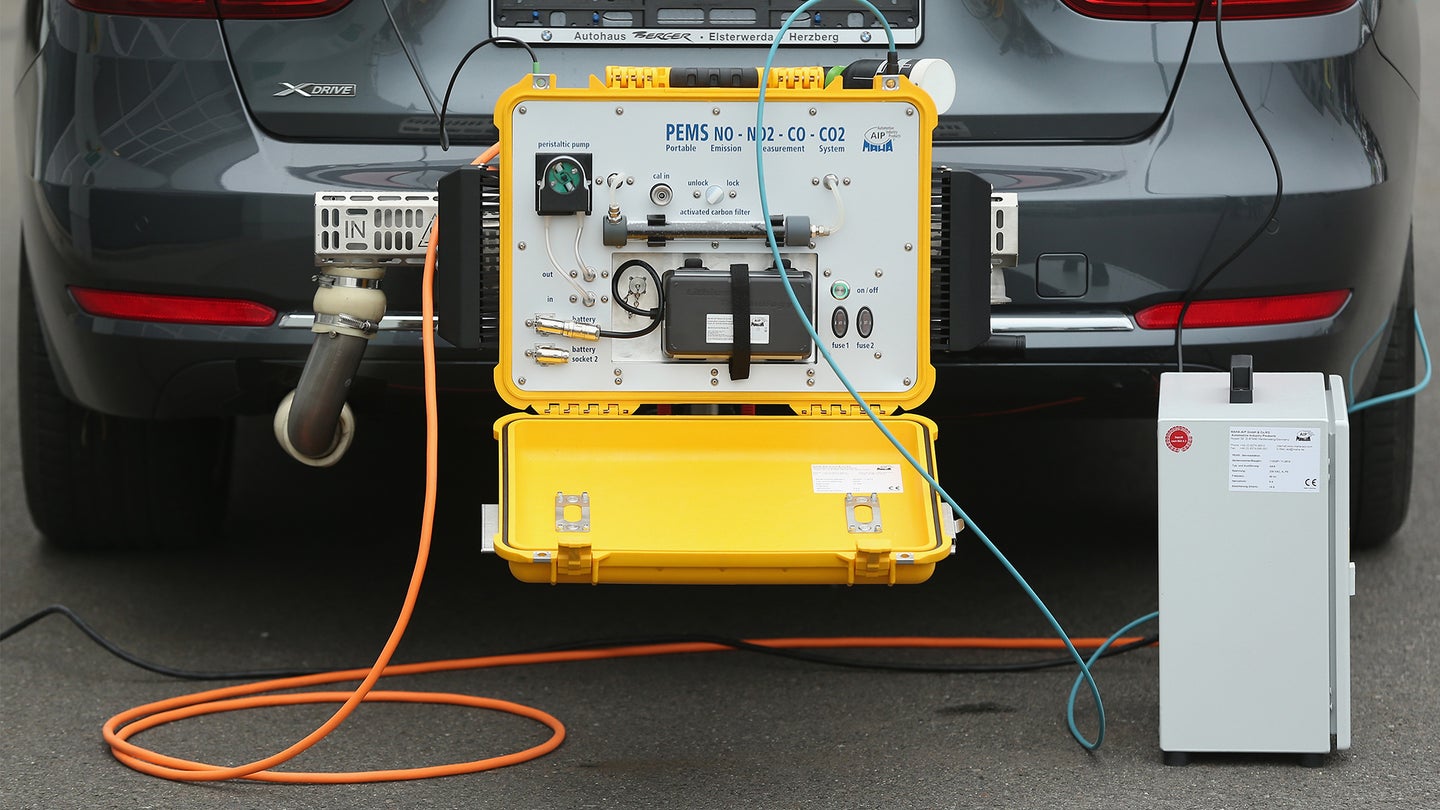New European Fuel Economy Standards Wreak Havoc on Auto Sales
Bottlenecks in production have caused Volkswagen and Audi sales to drop over 50 percent compared to 2017.

Sales of new vehicles in Europe are falling hard and fast due to bottlenecks created by the mandatory changeover to new fuel economy testing standards. Starting on Sept. 1, all new car registrations must comply with these new standards, causing automakers to experience enormous delays in production.
These regulations are set in place by the Worldwide harmonized Light vehicle Test Procedure (WLTP) and they only apply to new vehicles purchased prior to the September starting date. Automakers pushed huge sales incentives during August to dump off vehicles which were certified under the New European Driving Cycle (NEDC), the European Union's previous testing standard. Now showrooms sit empty and the demand for vehicles can't be satisfied due to the bottlenecks created by the WLTP changeover.
Both Volkswagen and Audi sales were down over 50 percent compared to 2017 numbers, according to statements issued by the manufacturers. Audi alone reported a 56 percent decline in sales throughout Europe due to having largely reduced WLTP-compliant stock. Overall, the new auto sales in the UK were down 21 percent according to Automotive News.
“We expected challenging months and are responding actively to the situation,” said temporary Chairman of Audi's Board of Management, Bram Schot. “Week after week we once again have more engine/transmission variants in our portfolio and the feedback on our new models is very positive.”
Germany experienced one of the worst dips across the entire European Union, experiencing a sales lull of 31 percent in September. Porsche sales plummeted 76 percent while Volkswagen saw a decline of 62 percent. Non-European cars also saw a decline; Honda was third in line with a total sales loss of 59 percent.
Volkswagen also predicted that WLTP standards would cause production delays, previously publishing an article in its employee magazine that briefly outlined the complexities required to test vehicles in accordance with the procedures. At that time, VW was running around-the-clock shifts on 21 dynamometers and staffed at least twenty employees to outfit vehicles with mobile exhaust measurement devices for the new "Real Driving Emissions" tests, each of which lasted between 90 and 120 minutes. Reportedly, half of VW's current models are not WLTP certified and cannot be sold in the EU.
Until automakers are able to satisfy the WLTP testing requirements, these stinging sales numbers are likely to continue. Audi predicts that its overall end-of-year deliveries will be at similar levels to that of 2017, likely assisted thanks to its large phase-out of NEDC-tested vehicles during August. But all numbers are reliant on automakers certifying their vehicles to the new standards, and consumers may heavily weigh the increased carbon tax should vehicle fuel efficiency drop. Perhaps the paradigm of consumer choice will continue to shift from diesel to electrification amid the tougher testing standards.
